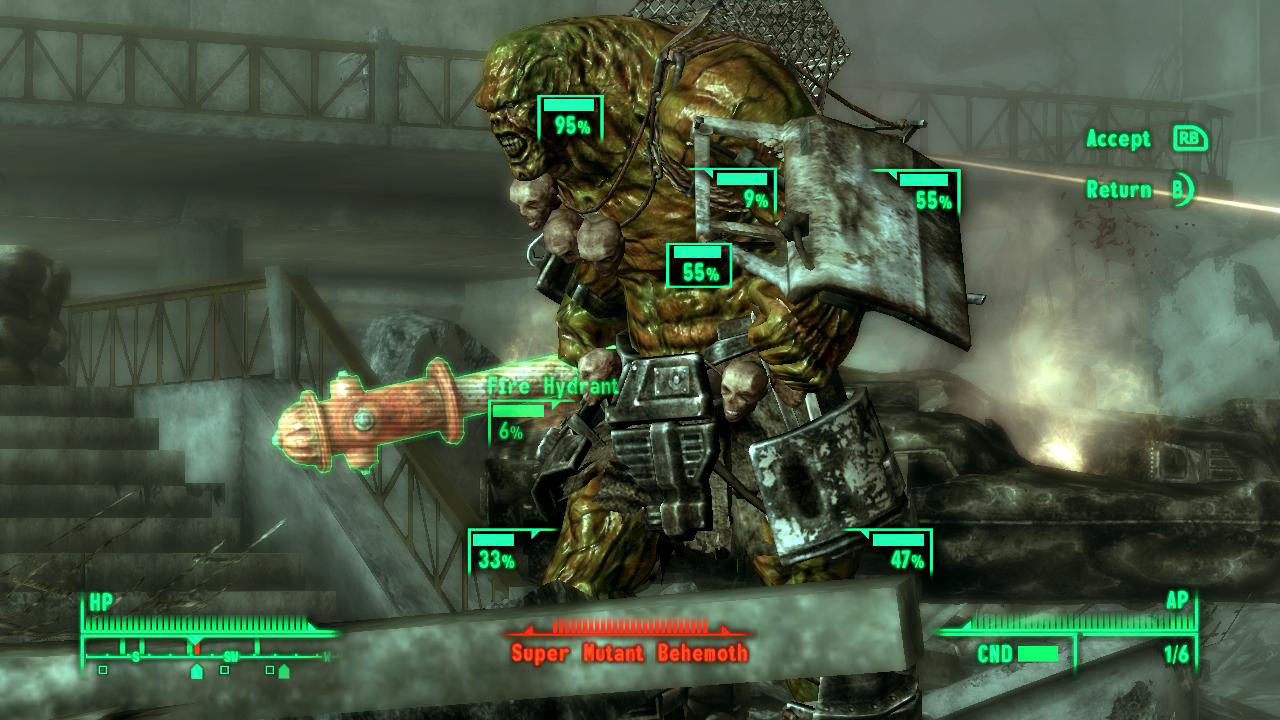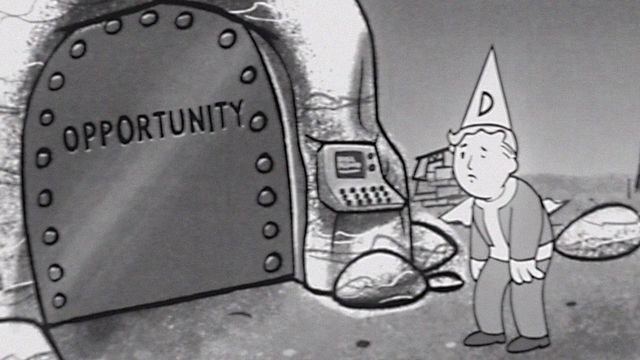As you may already know, leaks and good detective work prior to last month’s release of Fallout 4 revealed that Bethesda’s latest RPG would not have the traditional numbers-based skill system that we’ve seen previously in both Fallout 3 and other Bethesda titles. Initial reception to this knowledge was polarizing to say the least, adding to the game’s long laundry list of generally unfounded pre-release complaints.

The actual workings of this new system were primarily based on speculation. Some complained that the perk leveling system would ‘dumb down’ the game; furthering the advances Bethesda has made in recent years to widen the audience of their games. Others, like myself, were silently optimistic.
“It’ll probably be just fine, if not revolutionarily better than we could ever conceive,” I told myself while scrolling through the maddening flurries of message board babble.
So how did it end up in retrospect?
Personally, it’s fine and actually pretty interesting. Regardless of where you lie on the spectrum, the change has sparked an interesting debate about the recent trend of streamlining traditional RPG mechanics in the genre as a whole.
This is hardly a new trend.
As the modern console base grew, it became apparent to many developers that the market couldn’t be ignored. For Bethesda, one of the earlier examples of this expansion came in the form of 2004’s Fallout: Brotherhood of Steel for the Xbox and PS2. Although the game was developed as a console title from the ground up, you can easily see through its gameplay that ideology of only making RPG games for a niche audience was changing.
We last got a taste of this in Bethesda’s The Elder Scrolls V: Skyrim, where you could spec your character by focusing on certain specific skill sets and could eventually master them all. Many saw this as a poorly streamlined way to make the traditionally boring ‘numbers game’ of old-school RPGs appeal to a bigger audience, especially those on consoles.
On the other hand, others praised it for allowing the player to experience all sides of the combat and skill trees in a single playthrough, while still allowing total specialization in any given area. It was up to the player how they wanted to play the game and they could alter their choice at any time. Skyrim emphasized accessibility for newcomers and veterans alike, something the series had been struggling with up until that point.

Going back further, Fallout 3 is the perfect example of a game with a foot on both sides of the line.
In comparison to its sequel’s first-person combat, Fallout 3 flops terribly. But it worked just enough at the time to warrant its classification as a first-person role-playing game. It brought series newcomers, such as myself, into the gorgeous wasteland world that Bethesda had crafted.
With tons of skills to put even more tons of points into, intricate inventory management, and turn-based combat, I was introduced to a completely new gameplay experience on a console. It wasn’t flawless, but I got hooked from the moment the wasteland presented itself beyond Vault 101’s door. And it wasn’t just me. People who I never dreamed would give a series like Fallout the time of day – did. And they loved it.
One of the reasons for Fallout 3’s overall success was how well it worked on consoles. Sure, it had its issues here and there, as it had been originally ported from the PC version. But the core gameplay mechanics were solid across all platforms and had been finely tuned to make the experience not feel clunky or bogged down.
Never before could we comprehend these complex ‘PC Only’ games working on consoles. Whether it was due to system demand, difficult control schemes, or as it seems in case of the old school PC RPG: the entire genre. For a long time, most RPGs just didn’t make sense on consoles. But by streamlining some mechanics, this became possible. And for the most part, it didn’t water down the RPG experience. PC gamers couldn’t complain that the console editions took features away from them.

So how does Fallout 4 fare?
Fallout 4 clearly carries over the basic principles that made its predecessors so successful and appealing to gamers across all platforms. To top such success, radical moves and changes are inevitable. Making the V.A.T.S. targeting move in semi-real time compliments those who felt the previous games were too easy with the old system. Improving the look and feel of the first-person combat outside of V.A.T.S. gives those who just want to shoot things the ole’ fashioned way an effective outlet to do just that. For those who don’t really care either way, such as myself, you’ll find a more inviting and dynamic combat system that plays smoothly.
Some of the polarizing design and mechanic decisions made for Fallout 4 were not only good for the final product, but also for the series’ direction as a whole. No matter how you view it, developers deserve more trust in how they broaden the scope of their games. Sure, their visions may not always look the way we want them to. But letting developers do what they do best is definitely worth the reward in the long run.
If you look at perks and go ‘how am I progressing?’ Oh, I feel like I’m getting better. Things are happening . . . It all feeds into that theme.
– Todd Howard, Game Director
The intention to bring such a great series to a wider audience, so more gamers can enjoy the thoughtfully crafted experiences that Bethesda prides itself on, has proven to be a wholeheartedly positive one thus far. And streamlining mechanics to make those games accessible is part of that process.







Published: Dec 8, 2015 10:43 pm